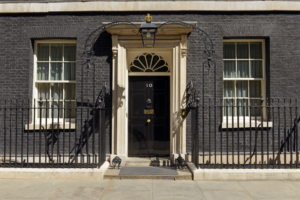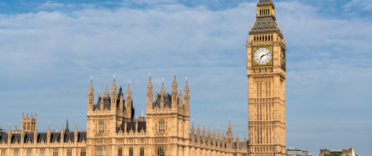
Here is a quick summary of the key announcements made today, click on the heading for more information or scroll down to read the full article:
- Income tax thresholds frozen until 2028
- Highest tax threshold (45%) lowered from £150,000 to £125,140
- Energy Price Guarantee to run for another 12 months, but increased to £3,000
- State benefits increased by 10.1%
- Benefit cap increased by 10.1%
- New cost of living payment package totalling up to £1,350
- Pensions 'triple lock' honoured - Pensions to rise by 10.1% - Increase of £745- £972 per year
- National Living Wage increased by 9.7% to £10.42 per hour
Taxation
Freeze on some Income Tax thresholds
While not technically a tax rise, Chancellor Jeremy Hunt has confirmed that all income tax bands except for the additional rate tax band will be frozen until April 2028, meaning millions will ultimately end up paying more tax as their wages increase over time. Sometimes referred to as 'bracket creep', freezing income tax thresholds at a time when average wages are increasing helps to secure additional tax revenues for the government (a form of stealth taxation). A freeze has the effect of pushing low-paid workers into the tax system while at the same time pushing other workers into higher tax brackets.
Threshold reduced on the highest rate of Income Tax
The threshold for the top rate of tax, known as the 'Additional rate' tax band has been cut from £150,000 to £125,140. It means those earning over £150,000 will pay an additional £1,243 per year in tax.
Capital Gains Tax
The annual exempt amount for capital gains tax is to be cut from £12,300 to £6,000 in April 2023, reducing to £3,000 in April 2024.
Electric vehicles
From April 2025, electric vehicles will no longer be exempt from Vehicle Excise Duty.
Stamp Duty
The change to Stamp Duty thresholds announced in the now infamous mini-budget in September will remain in place, but only until the end of March 2025 when they will return to the previous thresholds. This means that from April 2025, the threshold for when Stamp Duty starts to become payable reduces from £250,000 to £125,000, a change that will cost house buyers an additional £2,500 on properties worth £250,000 or more. You can read more about the latest stamp duty thresholds in our mini-budget roundup.
Windfall tax
The government today announced an increase to the Energy Profits Levy. It means that from 1st January 2023, energy companies that make extraordinary profits must pay 35% tax, up from 25%. It is to be in place until 2028.
Energy help
The Energy Price Guarantee is a government scheme that ensures that UK households pay a lower amount for their energy, equivalent to £2,500 per year for the average UK household until April 2023. The Chancellor today announced that the Energy Price Guarantee will be extended beyond April 2023, however, the cap has risen from £2,500 to £3,000 and will last for a further 12 months.
If you are worried about the rising cost of energy, check out our article 'How to save money on your energy bills'
State benefits
State benefits increased
Inflation-linked state benefits will increase by 10.1% in April 2023. The rise mirrors September's inflation figures according to the Consumer Price Index (CPI).
Benefit cap increase
The benefit cap, which caps the maximum amount of benefit a family or single adult can claim, has also been increased by 10.1%. This means that the family cap will rise from £20,000 to £22,020 and for those in Greater London it will rise from £23,000 to £25,323. The cap for single adults will be raised from £13,400 to £14,753 and single adults in Greater London will see a rise from £15,410 to £16,967.
Cost of living payments
A new cost of living payment totalling £900 will be paid to the most vulnerable ensuring those on certain means-tested benefits will receive additional help during the cost of living crisis. Cost of living payments were initially introduced in 2022 and the government has committed to a further support package for 2023/24. Pensioner households will receive an additional £300 cost of living payment and those on disability benefits will receive an additional £150.
Pensions
The government received heavy criticism in 2021 when it went back on its promise to increase state pensions under the 'triple lock' rule. The 'triple lock' rule stipulates that state pensions should increase in line with whichever is the highest of the following:
- Inflation (according to the Consumer Prices Index [CPI] in the preceding September)
- The increase in average earnings between May and July
- 2.5%
Following rising inflation, the triple lock rule was suspended for the 2022/23 financial year with pensioners receiving an increase of 3.1%, far lower than the 8% they would have received had the triple lock rule been honoured.
However, Chancellor Jeremy Hunt announced today that the triple lock rule has been reinstated for the 2023/24 tax year meaning state pensions will rise by 10.1% in April 2023. We explain below how the rise is likely to impact you.
State pension increase from April 2023
- Reached state pension age prior to 2016 - State pension will rise from £141.85 to £156.18 per week - a rise of £14.33 per week
- Reached state pension age after 2016 - State pension will rise from £185.15 to £203.85 per week - a rise of £18.70 per week
National Living Wage & National Minimum Wage
The National living wage for those aged 23 and over has been increased by 9.7% from £9.50 to £10.42 per hour, which is the largest ever increase to the UK's national living wage. The change will take effect from April 2023 and equates to an increase of £1,600 per year for a full-time worker. The government has also confirmed an increase to the National Minimum Wage and we summarise the increases below.
- Rate for those over 23 increased by 9.7% - from £9.50 to £10.42 an hour
- Rate for 21-22 year olds increased by 10.9% - from £9.18 to £10.18 an hour
- Rate for 18-20 year olds increased by 9.7% - from £6.83 to £7.49 an hour
- Rate for 16-17 year olds increased by 9.7% - from £4.81 to £5.28 an hour
- Rate for apprentices increased by 9.7% - from £4.81 to £5.28 an hour
Further reading
- Mini-Budget 2022
- Mini-budget u-turns - what does it mean for you?
- Energy Price Guarantee explained
- A complete guide to the Cost of Living Payments
- Help with energy costs






